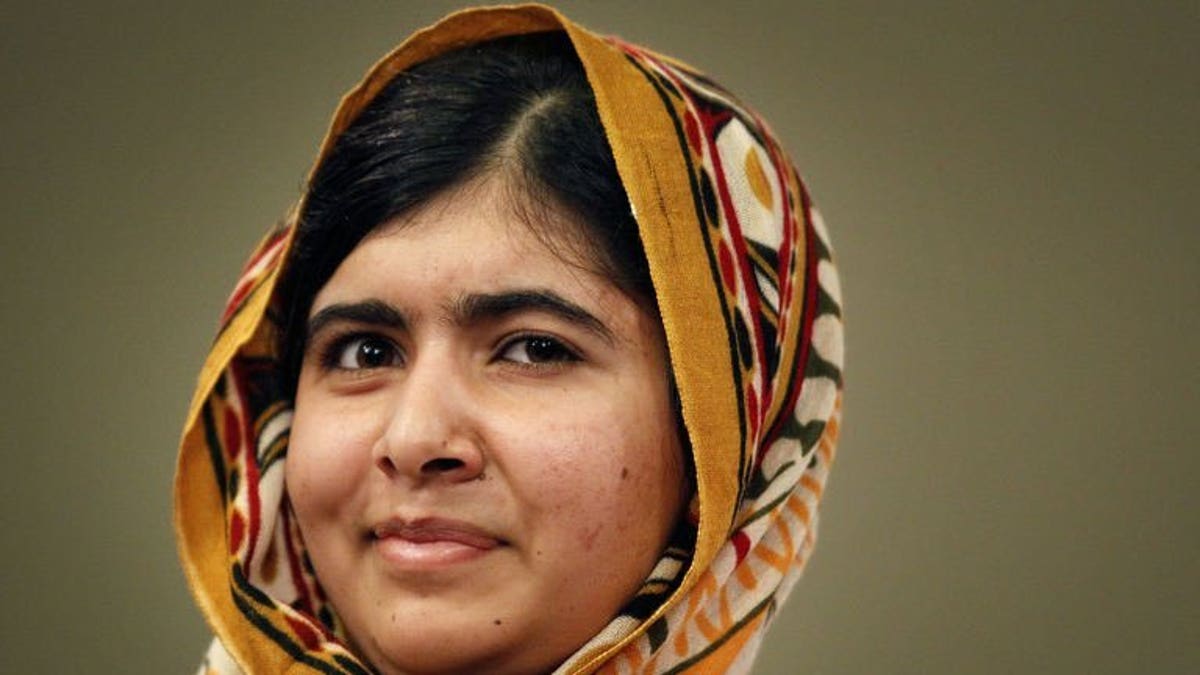
Pakistani activist Malala Yousafzai poses for a photograph after being awarded the International Children's Peace Prize at The Hague, on September 6, 2013. (ANP/AFP)
THE HAGUE (AFP) – Pakistani teen Malala Yousafzai, shot in the head last year by the Taliban for campaigning for girls' education, vowed Friday to intensify her struggle for "a world where everyone can go to school."
Speaking at a ceremony in The Hague where she was awarded the 2013 International Children's Peace Prize, Malala said last October's attack on her had made her more determined than ever to continue her campaign.
"I was just one target for their violence," Malala said in her acceptance speech, referring to her near-fatal shooting when a Taliban gunman's bullet grazed her brain.
"There are many others for whom we must continue... so that children all over the world can have a right to go to school," she said to thunderous applause.
Malala, 16, received her prize from the 2011 Nobel Peace laureate, Yemeni journalist and activist Tawakkol Karman, who told a humbled Malala "you are my hero."
"You cried: 'No one can stop me or any girl from learning'," Karman told Malala, speaking in Arabic in an address praising the Pakistani teen's achievement.
"The bullet aimed at your head at that moment was a milestone in the history of your country," Karman said at the ceremony at the historic Knight's Hall near the Dutch parliament.
After she was shot, Malala was given life-saving treatment in Britain where she now lives.
Her brave fight for survival and her speech at the United Nations in July have made her a leading contender for this year's Nobel Peace Prize.
But the response to her in Pakistan has been mixed, with many hailing her as a national heroine while others have criticised her for promoting a "Western" agenda.
The International Children's Peace Prize, an initiative of the Dutch-based KidsRights Foundation, was launched in 2005 and set off by former Soviet leader Mikhail Gorbachev when he chaired the Summit of Nobel Peace Laureates in Rome.
It carries a cash value of 100,000 euros ($133,000) that is invested in projects relating to the winner's cause.
Last year's winner was 13-year-old Cris "Kesz" Valdez for his work with Filipino street children while he himself was destitute.




















